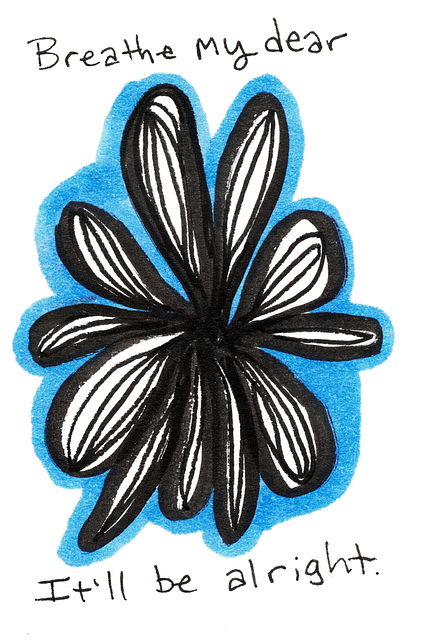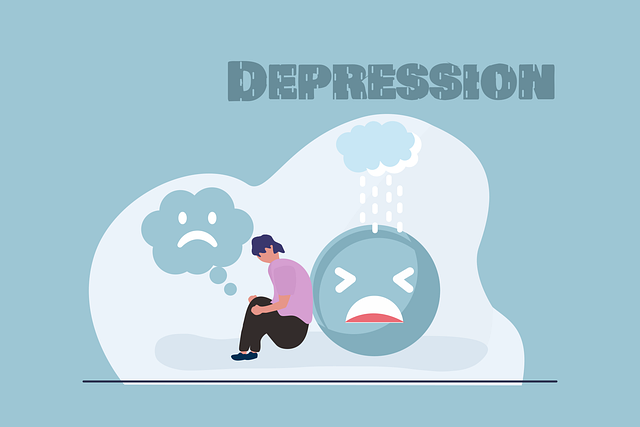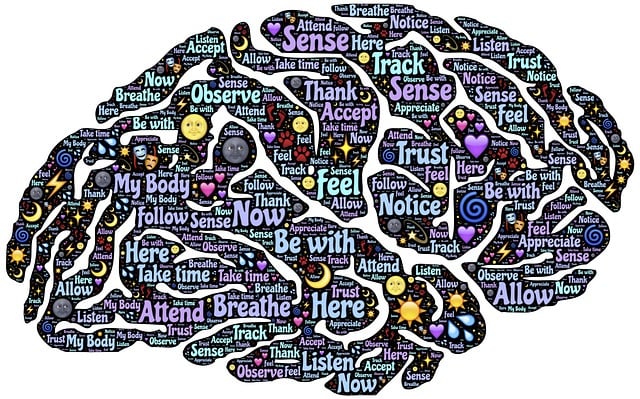Mental wellness promotion for vulnerable children affected by domestic violence involves a holistic approach focusing on emotional, psychological, and social well-being. Early therapy interventions are crucial to heal trauma, build resilience, and develop healthy coping mechanisms. Techniques like Cognitive Behavioral Therapy (CBT), Social Skills Training, and Stress Management empower children to navigate challenges and improve their mental wellness. Building resilience through evidence-based therapy practices and public awareness campaigns helps break down stigma, encouraging early intervention and supporting these children's overall well-being.
Mental wellness promotion is a holistic approach that aims to nurture children’s resilience and overall well-being. This article delves into key aspects of supporting vulnerable youth affected by domestic violence, offering valuable insights for professionals and caregivers. We explore the multifaceted nature of mental wellness promotion, focusing on therapy as a powerful tool to heal trauma. By understanding the impact of domestic violence and implementing strategies like building support systems, we can empower children to thrive.
- Understanding Mental Wellness Promotion: A Comprehensive Approach
- The Impact of Domestic Violence on Children's Mental Health
- Therapy as a Tool: Effective Interventions for Children Affected by Domestic Violence
- Building Resilience and Support Systems for Children's Wellbeing
Understanding Mental Wellness Promotion: A Comprehensive Approach

Mental wellness promotion goes beyond mere absence of mental illness; it’s about cultivating a state of overall well-being, encompassing emotional, psychological, and social health. It involves a comprehensive approach that acknowledges the interconnectedness of various factors affecting mental health, such as environment, relationships, and life experiences. For instance, understanding and addressing domestic violence—a significant risk factor for numerous mental health issues—is crucial in promoting mental wellness among vulnerable populations like children. Therapy for Children exposed to domestic violence can play a pivotal role in helping them process trauma, build resilience, and develop healthy coping mechanisms.
This holistic approach also emphasizes the importance of proactive measures. Risk Management Planning for Mental Health Professionals is essential to ensure practitioners are equipped to handle complex cases, manage their own well-being, and deliver effective Trauma Support Services. Moreover, fostering confidence among individuals through various interventions can significantly contribute to mental wellness by enhancing self-esteem, promoting positive thinking, and encouraging active participation in maintaining a healthy mind.
The Impact of Domestic Violence on Children's Mental Health

Domestic violence can have profound and lasting effects on children’s mental health, shaping their emotional well-being long into adulthood. Exposure to violent environments often leads to a heightened state of fear, triggering anxiety and trauma responses that may manifest in various ways. Children might struggle with feelings of insecurity, low self-esteem, and difficulties in forming healthy relationships as they grow up. These experiences can significantly impact their ability to trust others and process emotions effectively, leading to long-term mental health challenges such as depression, post-traumatic stress disorder (PTSD), and social anxiety.
Early intervention through therapy for children exposed to domestic violence is crucial. Professional support can help them process their traumatic experiences, build coping mechanisms, and develop healthier attachment styles. Healthcare providers play a vital role in identifying signs of trauma and providing appropriate referrals for therapy, ensuring that these young individuals receive the necessary support to overcome their challenges. Cultural competency training for healthcare providers is essential to offer sensitive care tailored to each child’s unique background and experience, promoting effective burnout prevention strategies while fostering anxiety relief.
Therapy as a Tool: Effective Interventions for Children Affected by Domestic Violence

Children who experience domestic violence are at a heightened risk for developing mental health challenges due to the trauma they endure. Therapy serves as a powerful tool in mitigating these risks, offering effective interventions tailored to their unique needs. Specifically, Cognitive Behavioral Therapy (CBT) has proven successful in helping children process and overcome emotional distress associated with witnessing or participating in violent acts within the home. CBT focuses on identifying negative thought patterns and replacing them with healthier, more adaptive coping strategies.
In addition to CBT, Social Skills Training and Stress Management techniques are integral components of therapy for children affected by domestic violence. These programs aim to enhance their ability to interact positively with peers, build resilience in the face of stress, and develop healthy emotional regulation skills. Mental Wellness Coaching Programs designed specifically for this population can further equip them with tools to navigate challenging situations, foster self-esteem, and promote overall mental wellness.
Building Resilience and Support Systems for Children's Wellbeing

Building resilience in children is a crucial step towards fostering their mental wellness and overall wellbeing. It equips them with the tools to navigate life’s challenges, especially those arising from exposure to domestic violence. Therapy for Children plays a pivotal role here, offering specialized support to help them process trauma, build coping mechanisms, and regain a sense of safety. Through evidence-based practices, therapists create a nurturing environment where children can express their feelings, develop emotional intelligence, and learn healthy ways to manage stress and anxiety.
Encouraging open conversations about mental health and providing Mental Wellness Journaling Exercise Guidance can be powerful tools for both children and their support systems. Keeping a journal allows them to process their thoughts and emotions while offering a sense of control over their experiences. Additionally, Public Awareness Campaigns Development focused on normalizing discussions around domestic violence and mental health can significantly contribute to breaking down stigma, promoting understanding, and encouraging early intervention.
Mental wellness promotion is a holistic process that involves understanding, supporting, and nurturing individuals’ psychological well-being. By addressing issues like domestic violence, which significantly impacts children’s mental health, we can implement effective strategies such as therapy to foster resilience and build supportive systems. Targeted interventions and comprehensive approaches are key to ensuring the long-term wellbeing of affected children, offering them a path towards healing and a brighter future. This involves not only treating symptoms but also empowering children with coping mechanisms and strong support networks to thrive in all aspects of their lives.













